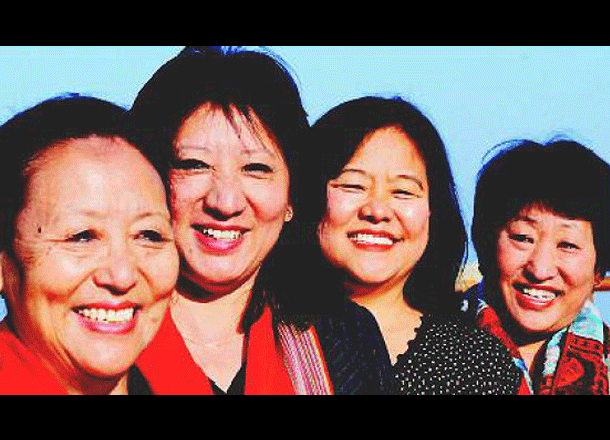Nagaland: Is woman reservation policy really alien to Naga culture?

Nagaland attained statehood in 1963, but since then, it has not elected a single woman to its Assembly. It has also only ever sent one woman to Parliament – Rano M Shazia, who was elected to the Lok Sabha back in 1977.
This reality pervades through all levels of governance in the state.
Traditional village councils, formalised through the passage of the Nagaland Village Councils Act 1978, have hardly any female representation. And though laws have been enacted providing for 33% reservation of women in municipal and town councils, their implementation has been halted, as a result of which there is not a single woman in these bodies.
At first glance, Naga women do not appear oppressed. You meet strong, articulate women, well-known writers, poets, academics and activists.
You also see women doing backbreaking work in the fields, carrying heavy loads of firewood, cooking, cleaning, weaving or selling vegetables and fruits in markets and by the roadside.
Yet, a Naga woman cannot call the field in which she works her own, or lay claim to house she manages or even her kitchen garden. If it is ancestral property, she is not entitled to inherit it.
The only exception is acquired property – parents can gift their daughters land. But after her death, that land will not go to her heirs; it will be returned to her clan.
For the women in Nagaland, then, the battle is two-pronged – for representation in institutions of governance and for the right to inheritance.
In many ways, the fight for representation in self-governing bodies is symptomatic of the larger battle of Naga women against their society's inherently patriarchal traditional structures.
The village councils predominantly consist of men who are selected by villagers. They have powers to govern many aspects of village development, including the use of development funds. In that regard, they're quite similar to panchayats. The big difference, though, is that they are not elected bodies (in the way that panchayats are) and they have hardly any women.
Additionally, all villages have Village Development Boards (VDB) and a state law in 1980 stipulated that a quarter of their members should be women. Though this provision has been implemented, the resistance to women entering village councils continues.
In the last few of years, a few village councils, mostly in Dimapur and in Phek district in eastern Nagaland have taken a few women on board. Tokheli Kikon, Chairperson of the Naharbari Village Council, is the first and only woman so far to head a village council.
But these are the exceptions, not yet the norm.
For those have found a place in the village councils, there is the expectation that they can make a difference, even if there are only two women in a council of 30 or more men.
The Nagaland Assembly passed the Nagaland Municipal (First Amendment) Act in 2006. This provided for 33% reservation of seats for women. But till today, this cannot be implemented because men have argued that this runs counter to customary law. And according to Article 371A of the Constitution, Nagaland is exempt from any law that does not conform to customary laws.
The Nagaland Tribes Council however urged the Nagaland State Government to review the "erroneous insertion" of 33% women reservation and conduct fresh election without reservation at the earliest.
A press note from the NTC stated that it is "disheartened to see the much awaited municipality is again facing a murky situation because of insensible and shabby handling by the government of the day."
"There are no two opinions to say that the women reservation policy is alien to Naga Culture. Reservation policy in India is meant for down trodden people in the society. Whereas, there is no practice as such that random depravation basing on gender in Naga Society.
The position and status are rated and ascribed according to ones capacity and achievements. Therefore, the make believe of certain section as depraved or discriminate is an offence and against our custom. The very concept of reservation is self defeating because it rather leads to stigmatization of those sections as lesser souls," the NTC stated.
The decision to hold election amidst "strong people's opposition," it said is "an imposition which will never carry the people's mandate."
Women reservation, the NTC stated is "against our time tested custom and tradition," and cautioned that if introduced would infringe Article 371 A of the constitution "whereby the Nagas of Nagaland are provided with full guarantee to govern as per our custom and tradition."
No amount of justification, it added, "will compensate the depravation of our rights and custom at this moment."
These debates on women's rights do not make it to the so-called national press as conflict and politics dominate the discourse. Yet, for the future of Naga society, caught on the cusp between tradition and modernity, the outcome of these struggles will be crucial.
TNT News
Representational image used from internet sources

















